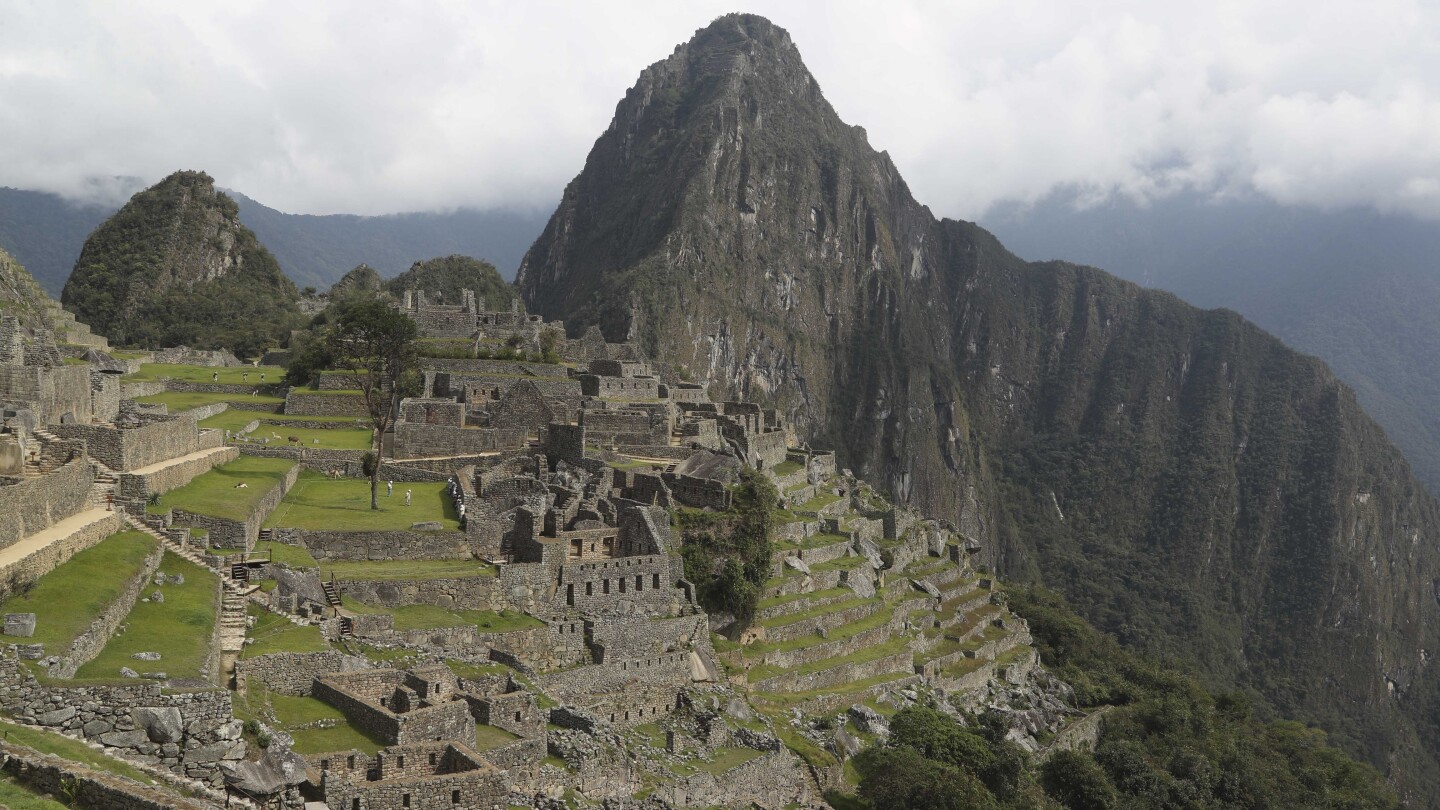LIMA, Peru (AP) — Peru's government on Wednesday backed away from plans to outsource the sale of admission tickets to Machu Picchu For a private company, a week after protesters blocked access to the country's most popular tourist attractions and suspended rail service to the area.
Despite the decision, the streets, hotels and restaurants surrounding the site remained almost deserted.
Eleven days after the government announced the change to the ticketing system, which had been in the hands of a state body for 15 years, the executive relented and ended the contract, which the local tourism sector had questioned.
Peruvian Culture Minister Leslie Ortega, who alleged irregularities and a loss of $1.8 million in tickets that were not reported by state offices, finally agreed to the protesters' request after meeting with the regional president of Cusco and the mayor of the Machu Picchu region.
Authorities committed to moving ticket sales to an online platform run by the national government and canceled the contract with Joinnus, the virtual ticket sales company owned by one of Peru's richest economic groups that took over the service in mid-January.
Rail service to the area – which had been suspended on Friday – quickly resumed immediately, but visitor arrivals remained largely slow.
“It seems like this is the time of the Covid-19 pandemic, you hardly see anyone,” said Roger Monzón, an employee at the Incas Land Hotel in Machu Picchu, an 18-room building that currently houses only tourists from Portugal.
The few tourists who continued to visit the Inca site during the week-long demonstration, most of them young people, had to take a longer and more difficult route. They will drive 210 kilometers (130 miles) from Cusco to a hydroelectric power station where they will walk for two hours to reach the Machu Picchu area, where they will rest. Then they had to walk to the stone castle for another two and a half hours.
Four countries – the United States, Germany, France and Brazil – have advised their citizens to exercise caution if they plan to visit Machu Picchu, a World Heritage site since 1983, citing potential shortages of water and other necessities caused by transportation disruptions.
Tourism is the main economic activity in Cusco, with more than 200,000 people having direct employment in this sector. In the times before the protests, up to 4,500 visitors entered Machu Picchu daily.
There are no official figures on potential losses during the first week of protests, but some tourism unions estimate the damage at about $4.7 million.
“The losses include all sectors directly linked to tourism such as tourist agencies, hotels, restaurants and tour guides, but also markets, taxi drivers and peasant communities,” said Elena Gonzalez, president of the Association of Tourism Agencies in Cusco.
___
Follow AP's coverage of Latin America and the Caribbean on https://apnews.com/hub/latin-america

“Unapologetic tv specialist. Hardcore zombie trailblazer. Infuriatingly humble problem solver.”







More Stories
Stand News editors convicted in sedition case
Latest Baysail sinking: Mike Lynch’s wife ‘didn’t want to leave boat without family’ as crew investigated
WFP halts Gaza operations after repeated shooting at aid vehicle